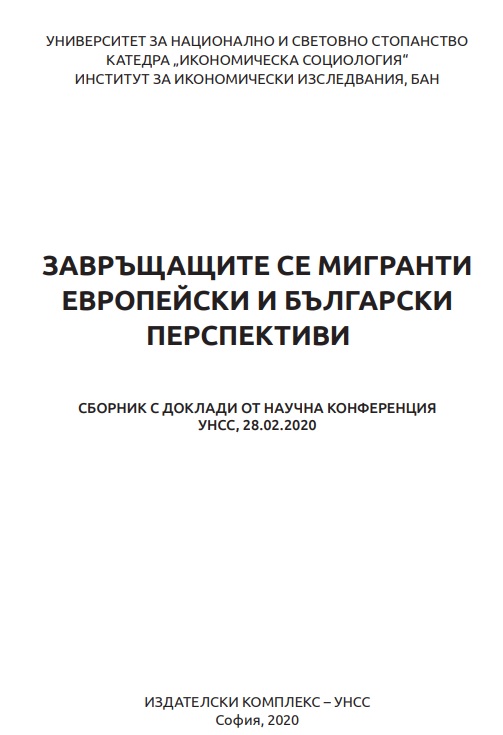Policies for Return Migration in Conditions of Intensive High Skilled Emigration
Policies for Return Migration in Conditions of Intensive High Skilled Emigration
Author(s): Verica Janeska
Subject(s): Social Sciences, Sociology, Migration Studies
Published by: Университет за национално и световно стопанство (УНСС)
Keywords: Migration Policies; Return Migration; High Skilled Emigration; Virtual Return; Diaspora
Summary/Abstract: This paper aims to explore which are the realistic policy options for return migration in conditions of intensive intellectual emigration. It provides an overview of the relevant theoretical aspects and experiences of the countries that have faced with great emigration abroad, as well as, the policy responses to high skilled emigration (“six Rs”) and the possibilities of their application in Balkan countries with high skilled emigration. Beside that, the example of the Republic of North Macedonia and its recently adopted Strategy for cooperation with the diaspora is presented. The literature review and observed experiences of the countries with intensive and long-term intellectual emigration, confirm that as long as the reasons for emigration abroad are not eliminated, the permanent return of migrants cannot be expected. In these circumstances, the attention should be paid on policies related to temporary return and virtual return. As for the policy responses to skilled emigration (“six Rs”) and their application in the Balkan countries, only three of them (retention through economic development, temporary return and resourcing expatriates/diaspora options) should be implemented. Recent activities of the Government of North Macedonia, for the large-scale emigration abroad reduction and stimulating return migration, are related with the main determinants of these trends. They are part of the macroeconomic policy for socio-economic development, reducing unemployment, increasing employment and standard of living of the citizens, advance working conditions, as well as improving the political situation in the country and its position regarding the Euro-Atlantic integration. Also, in 2019 the National Strategy of the Republic of North Macedonia for cooperation with the diaspora for the period 2019-2023 was adopted. The strategy has four pillars that correspond with its four strategic goals (political, legal and consular issues; diaspora and economic development; education, science and youth; cultural relations, cultural identity and cultural heritage).
Book: Завръщащите се мигранти: европейски и български перспективи
- Page Range: 22-37
- Page Count: 16
- Publication Year: 2020
- Language: English
- Content File-PDF

